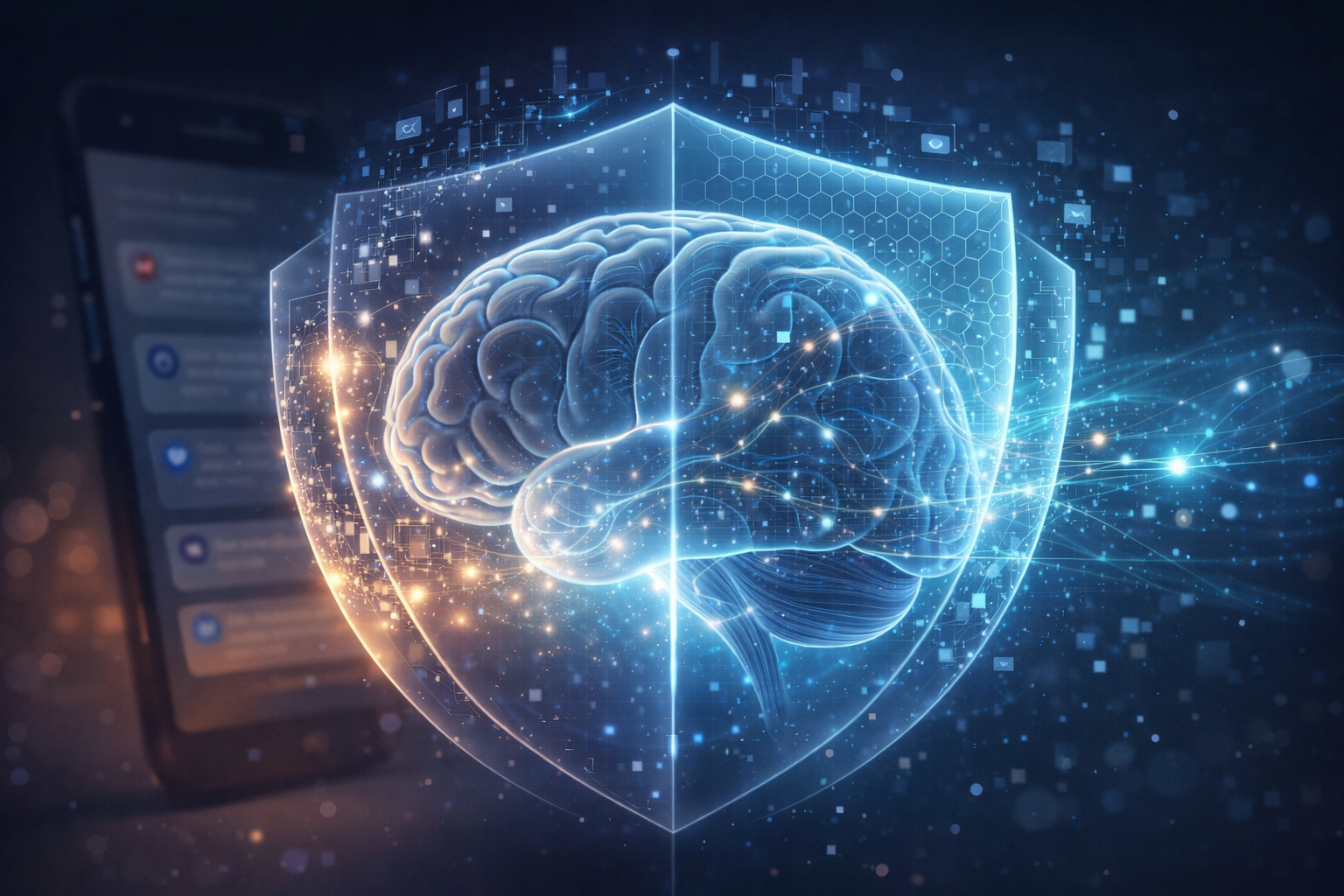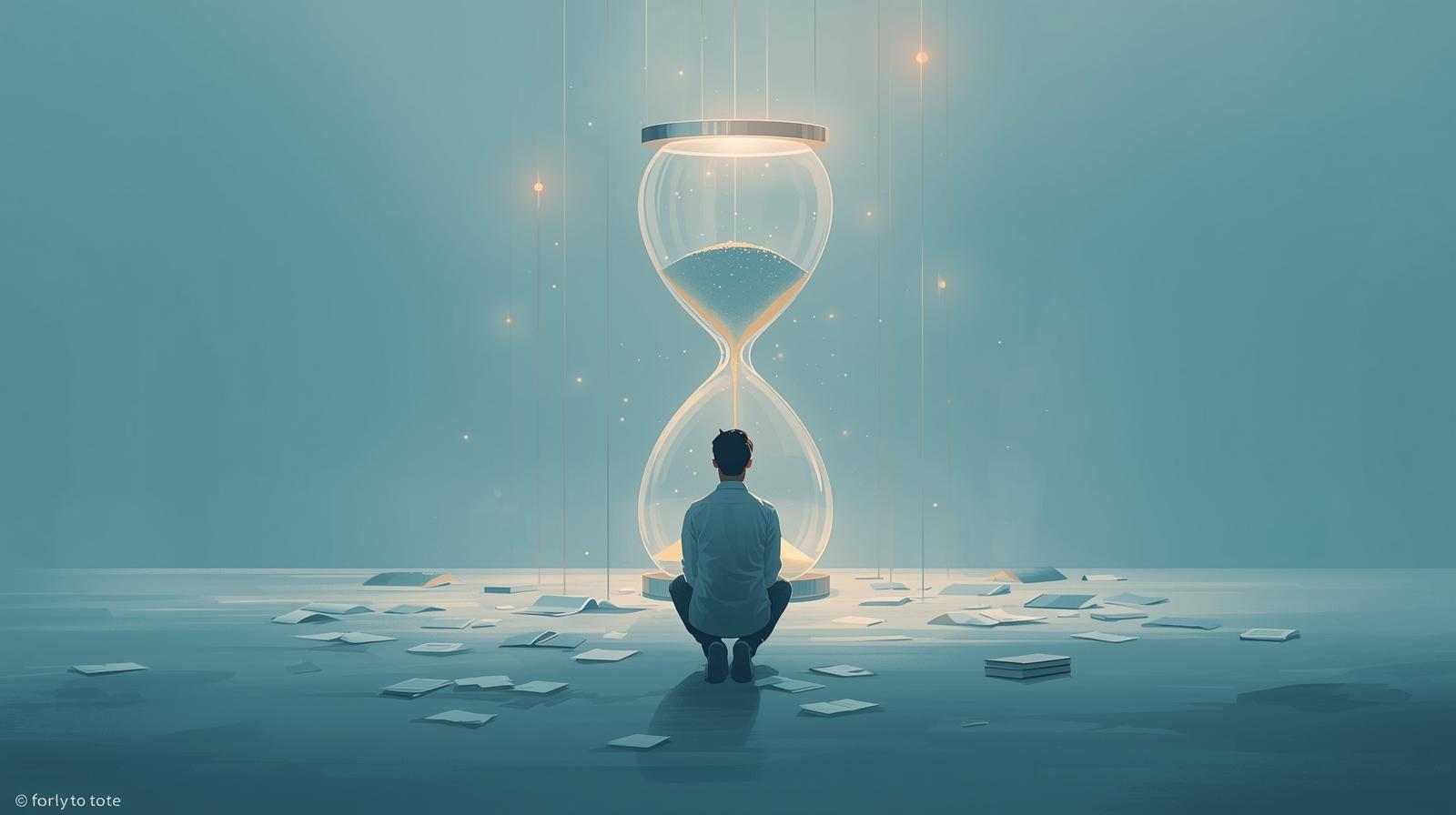
The Procrastination Paradox: How Your Brain’s ‘Pain’ Can Be Hijacked by AI
You’ve known about the essay for two weeks. The textbook sits ominously on your desk. Your to-do list is written, color-coded, and perfectly prioritized. So, why are you suddenly fascinated by the intricate art of organizing your pen cup, scrolling through social media feeds you’ve already seen, or watching a documentary about deep-sea creatures you didn’t know existed?
Welcome to the procrastination paradox: the irrational act of delaying a task we know is important, despite knowing the negative consequences.
For centuries, we’ve labeled procrastinators as “lazy” or “undisciplined.” But modern neuroscience reveals a different story. Procrastination isn’t a character flaw; it’s a neurological battle between two parts of your brain. And the secret to winning this battle isn’t just willpower—it’s a smarter strategy, powered by Artificial Intelligence.
This article isn’t another list of generic “top tips.” We’re going deep into the why—the brain science behind your delay—and then reveal how modern AI tools, like those within StudyWizardry, are uniquely equipped to be your ultimate ally in outsmarting your own mind.
Part 1: The Neurological Battlefield Inside Your Head
To conquer an enemy, you must first understand it. In the case of procrastination, the enemy is your own, beautifully complex brain.
The Limbic System vs. The Prefrontal Cortex
Imagine your brain has two key players in this drama:
-
The Limbic System: This is the ancient, emotional, and impulsive part of your brain. It’s all about immediate gratification and avoiding pain. It’s the part that screams, “This essay feels hard and stressful! Let’s watch a funny video instead—it feels good NOW!” The limbic system is powerful, automatic, and has been keeping humans safe from immediate threats for millennia.
-
The Prefrontal Cortex: This is the modern, rational, and executive part of your brain. It’s responsible for long-term planning, self-control, and decision-making. It’s the calm voice saying, “If I start this essay now, I’ll get a good grade, reduce my stress, and be free this weekend.”
When you face a daunting task, your limbic system interprets it as a threat—an emotional and cognitive pain. To escape this pain, it offers you a quick and easy distraction. Procrastination is simply the act of your limbic system winning the tug-of-war against your prefrontal cortex.
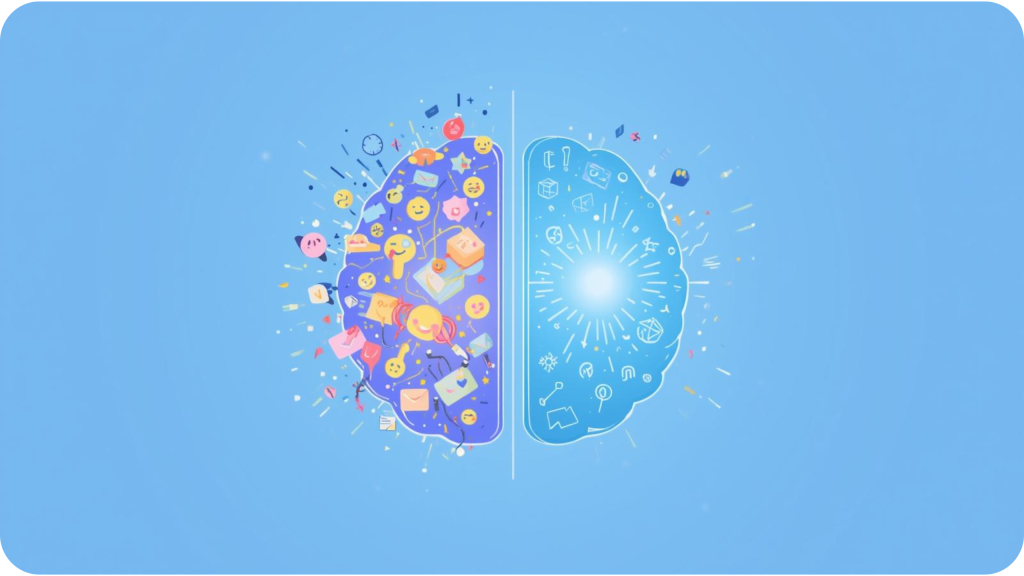
The Task-Dodging Trio: Why Your Brain Fights You
-
The Trigger: A task feels aversive—it’s boring, frustrating, ambiguous, or makes you feel insecure.
-
The “Solution”: To feel better right now, you escape the negative emotion by switching to a more pleasant task. This gives you an immediate mood repair.
-
The Cycle: The relief is temporary. The original task is still there, now made more urgent and even more stressful by the delay. This reinforces the idea that the task is indeed a “monster,” making you even more likely to avoid it next time.
The result? A self-defeating loop where short-term emotion regulation trumps long-term goal achievement.
Part 2: The Traditional Anti-Procrastination Arsenal (And Why It Often Fails)
We’ve all heard the classic advice:
-
“Just break it down into smaller steps!” (But what if you can’t even start breaking it down?)
-
“Use the Pomodoro Technique!” (Setting a timer is easy; resisting the urge to turn it off after 2 minutes is the real challenge.)
-
“Reward yourself afterward!” (But the distant reward of “feeling good” is no match for the immediate, dopamine-hit reward of a YouTube rabbit hole.)
These strategies aren’t bad—in fact, they’re foundational. The problem is they all rely on your already-depleted prefrontal cortex to implement them. It’s like asking the general who is losing the battle to also come up with a brilliant new strategy mid-fight. You need reinforcements.
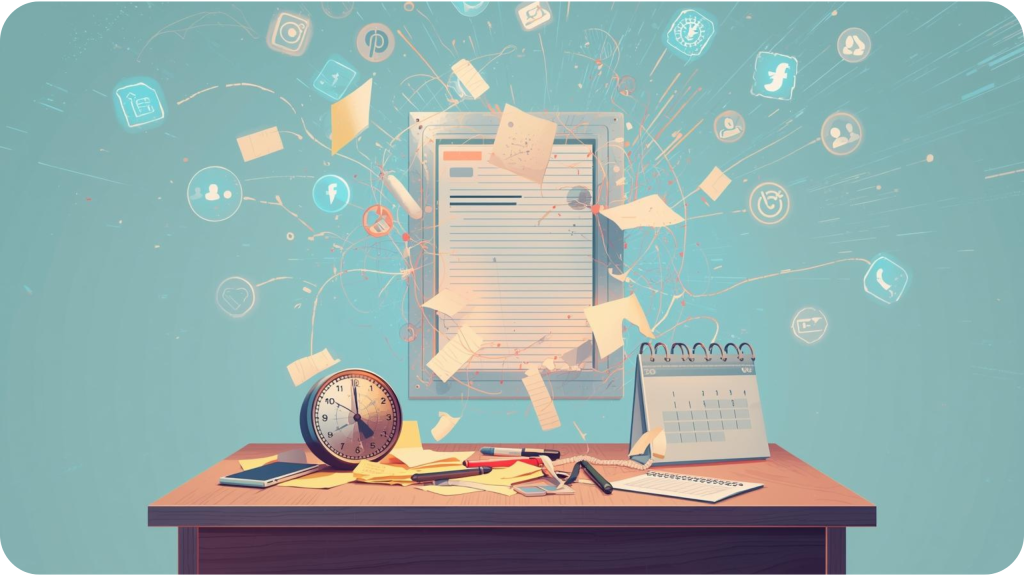
Part 3: Enter the AI Reinforcements: How StudyWizardry Hacks the Procrastination Cycle
This is where AI transitions from a cool gadget to a cognitive partner. StudyWizardry isn’t just an app; it’s an externalized, intelligent prefrontal cortex designed to support you at your most vulnerable moments.
Hack #1: Eliminating the “Where Do I Even Start?” Paralysis
The Brain Problem: An ambiguous, large task (like “Write 3000-word essay”) is a prime trigger for limbic system panic. The sheer scale is overwhelming.
The AI Solution: The AI Study Planner & Task Deconstruction
Instead of staring at a monstrous project, the AI Study Planner forces clarity. When you input a major goal and its deadline, it doesn’t just set a reminder. It intelligently deconstructs the macro-task into a series of micro-tasks and schedules them over time.
-
Before AI: “Write History Essay” -> Overwhelm -> Procrastinate.
-
With AI: You input “History Essay due Oct 30.” The planner suggests:
- Oct 15: Brainstorm thesis and 3 main arguments.
- Oct 18: Research and gather sources for argument 1.
- Oct 20: Write draft for argument 1.
- …and so on.
By making the first step incredibly specific and small (“Brainstorm thesis”), the AI removes the ambiguity that terrifies the limbic system. The task is no longer a threatening monster; it’s a 15-minute, manageable to-do item.
Hack #2: Making the Start Less Aversive
The Brain Problem: Even a small task can feel “hard” if it requires wrestling with dense source material.
The AI Solution: The PDF & Video Summarizer
Facing a 50-page academic paper is a classic procrastination trigger. The Summarizer acts as your advanced scout. Upload the PDF, and in seconds, you have a clear, concise summary of the key points. This transforms the task from “climb a mountain of text” to “review this one-page summary and find a starting point.” The perceived cognitive “pain” of starting plummets, making it easier for your prefrontal cortex to take charge.
Hack #3: The Ultimate Accountability Partner: The Focus Timer & Leaderboard
The Brain Problem: Willpower is a finite resource. When it wanes, the lure of distraction grows strong.
The AI Solution: Integrated Pomodoro Timer & Gamification
StudyWizardry’s built-in Focus Timer is more than a clock. It’s a commitment device.
- You commit to a 25-minute focus session.
- The app blocks out the noise, helping you honor that commitment.
- This external structure reduces the mental energy required to keep yourself on task.
But the real genius is the Leaderboard. Humans are inherently social and competitive creatures. By adding a gamified element where you can see your progress compared to your own goals or (anonymously) with peers, the app taps into a powerful motivational driver. Now, starting a study session isn’t just about avoiding future pain; it’s about earning points, climbing the ranks, and getting a small, immediate hit of dopamine from achievement. This directly counteracts the limbic system’s search for easy distractions.
Hack #4: Transforming Dreaded Tasks into Engaging Challenges
The Brain Problem: Passive review of notes is boring. Boring tasks are aversive. Aversive tasks are avoided.
The AI Solution: AI Quiz/Test Generator & Flashcards
Instead of “re-read Chapter 4,” which is a passive and uninspiring task, you can prompt the AI to “Generate a 10-question quiz from my notes on Chapter 4.” Instantly, review becomes an active, game-like challenge. Can you beat the quiz? This frame-shift—from passive duty to active challenge—fundamentally changes the emotional valence of the task, making your limbic system less likely to rebel.
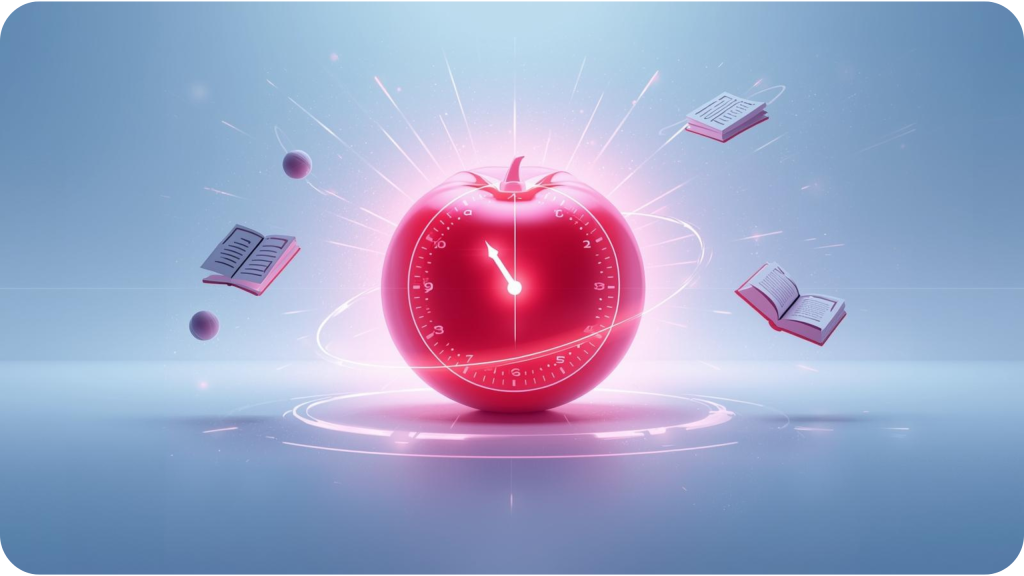
A Day in the Life: Beating the Procrastination Monster with AI
Let’s follow Maria, a college student who used to be a chronic procrastinator:
-
9:00 AM: Maria feels a wave of dread thinking about her upcoming Psychology paper. Instead of giving in, she opens StudyWizardry.
-
9:05 AM: She uses the PDF Summarizer on two research papers her professor assigned. In minutes, she has the core ideas, reducing her initial overwhelm.
-
9:15 AM: She opens her AI Study Planner. It shows her today’s micro-task: “Draft the introduction using the Feynman Technique.” It’s specific and time-bound.
-
9:20 AM: She opens the AI Note Maker and starts writing her introduction in simple terms, as if explaining it to a friend. The AI helps her paraphrase a complex theory.
-
9:30 AM: She sets the Focus Timer for 25 minutes. She sees she’s only 100 points behind her friend on the Leaderboard. She feels a jolt of motivation.
-
9:55 AM: The timer goes off. She has a solid draft of her introduction. She feels a sense of accomplishment, not stress. The limbic system is pacified.
-
Later that week: The planner prompts her to review her work. She uses the Quiz Generator to test her own understanding before the class discussion. She walks in feeling prepared and confident.
The Future of Learning is Proactive, Not Reactive
The integration of AI in education is often discussed in terms of content delivery. But its most profound impact may be on the meta-cognitive level—managing our own thinking and emotions about learning.
StudyWizardry’s role as a “Procrastination Hack” is a glimpse into this future. It’s an AI that understands not just what you need to learn, but how you feel about learning it. It provides the scaffolding, accountability, and cognitive offloading that allows your own brilliant, if sometimes conflicted, brain to perform at its best.
Conclusion: Stop Fighting Yourself, Start Partnering with AI
Procrastination isn’t a sign that you’re broken. It’s a sign that you’re human, equipped with a brain that sometimes prioritizes short-term emotional comfort over long-term success. The battle isn’t won by berating yourself; it’s won by changing the battlefield.
By using AI to eliminate ambiguity, reduce aversiveness, and create immediate, positive feedback loops, you can finally break the cycle. You can realign your limbic system’s desire for “feel-good now” with your prefrontal cortex’s goals for “achieve-great-later.”
Stop trying to out-muscle your biology. Outsmart it.
Ready to hack your procrastination habits for good? Download StudyWizardry now and let your AI study partner provide the structure, clarity, and motivation you need to conquer your to-do list and achieve your academic goals.
[Download StudyWizardry on the App Store]
[Get StudyWizardry on Google Play]
Traditional tools rely solely on your willpower to execute the plan. AI, like the engine in StudyWizardry, acts as an intelligent partner that adapts to you. It doesn't just hold your to-do list; it proactively breaks down overwhelming tasks into manageable steps, identifies your weak spots through quiz performance, and uses spaced repetition to schedule reviews before you forget. It offloads the cognitive burden of planning and prioritization from your overwhelmed prefrontal cortex, making it easier to start and maintain momentum. It's the difference between having a map and having a personal guide who adjusts the route in real-time based on your energy and progress.
Quite the opposite. Think of StudyWizardry not as a crutch, but as a training tool for your brain. By consistently using the AI to create a structure that makes starting easier, you are actively "hacking" the procrastination cycle. Each time you complete a micro-task scheduled by the AI Planner or finish a focused timer session, you're rewarding your prefrontal cortex and breaking the association that a task is a "threat." Over time, this repeated positive experience builds genuine, lasting self-discipline and better habits by reprogramming your brain's automatic response to challenging work.
While an AI doesn't "feel" emotions, it doesn't need to in order to be effective. It operates on the behavioral patterns and cognitive triggers that are well-documented in psychology. The "Silent AI Tutor" in StudyWizardry is designed to counteract the very specific neurobiological triggers of procrastination: it eliminates ambiguity (a key trigger) by deconstructing tasks, reduces the aversiveness of starting with summarizers and note-tools, and provides immediate positive reinforcement through gamification. It addresses the root causes of procrastination by systematically dismantling the obstacles that your emotional brain reacts to, all based on proven scientific principles.



